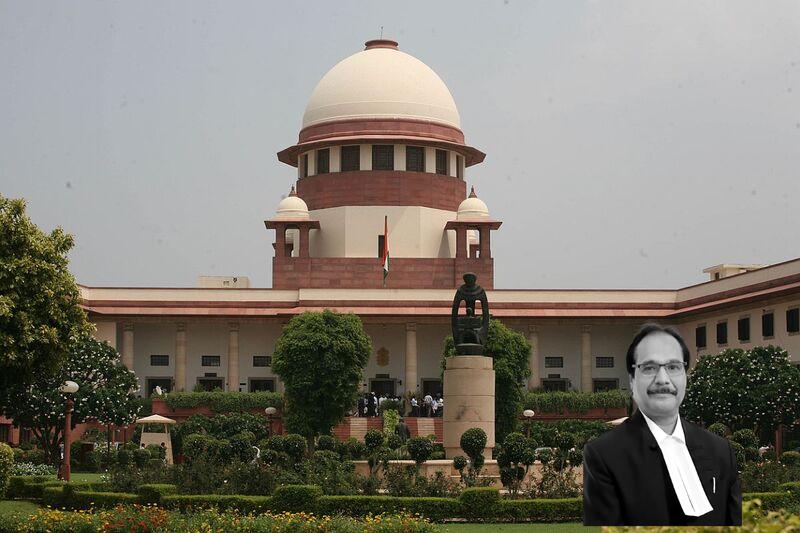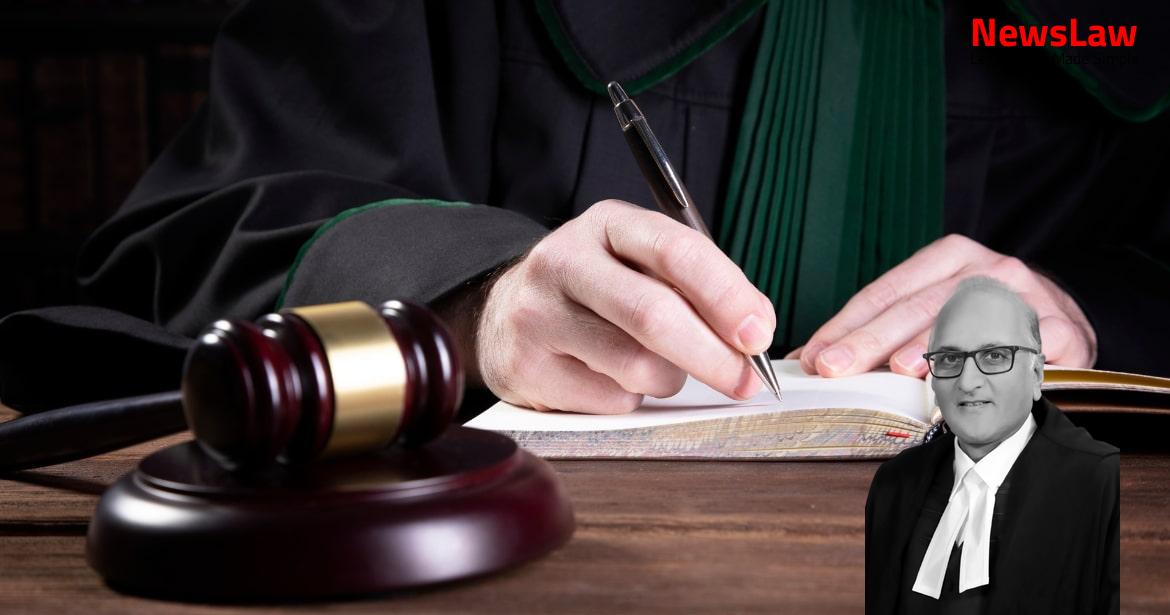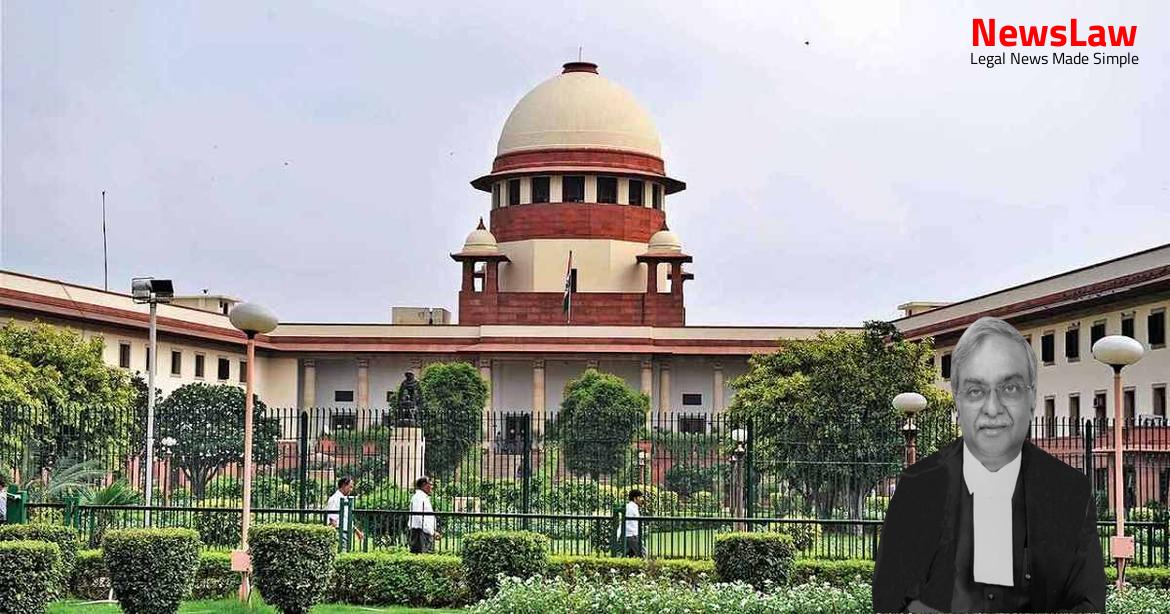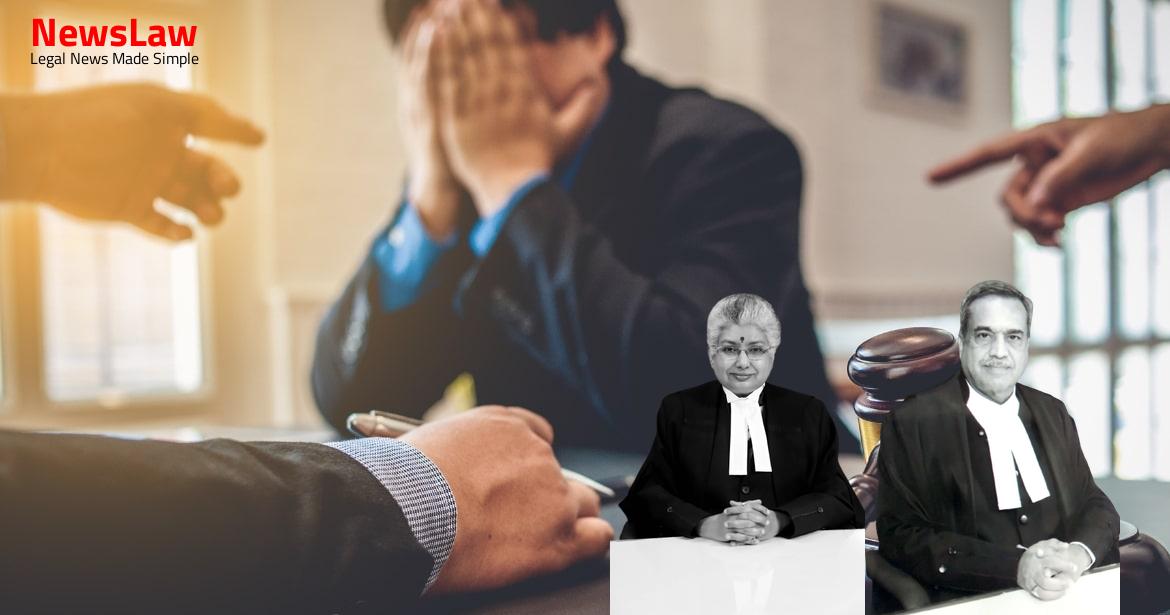These appeals would call in question, the impugned Judgment of conviction and sentence dated 24.12.2018 passed by the High Court of Judicature of Madhya Pradesh at Indore in Criminal Reference No 03 of 2018 and Criminal Appeal No 3830 of 2018 upholding the conviction of the appellant under Sections 363, 366-A, 376(A), 376(2)(i), 376(2)(j), 376(2)(k), 2 376(2)(m), 302 and 201 of the Indian Penal Code, and Section 5(m), 5(i) read with Section 6 of Protection of Children from Sexual Offences Act 2012, and confirming the sentence of death imposed on the appellant by the Fifth Additional Sessions Judge, Indore (MP) in Sessions Trial No 87 of 2018 arising out of Crime No 50 of 2018 dated 20.04.2018, registered at P.S. On 20.04.2018, complainant-Sunil along with his family members were sleeping at a platform near Rajawada, at about 03:00 a.m., his daughter (deceased) aged about three months and four days started weeping on which her mother Sonubai fed milk, thereafter, the deceased slept. On the basis of evidence brought on record during the course of trial, wherein the prosecution examined 29 witnesses 4 and also proved 78 documents including expert opinion/chemical report/FSL report, the Trial Court convicted the appellant for the subject offences against which the appellant preferred appeal before the High Court. Referring to the order-sheet recorded by the trial court from 27th April, 2018 to 12th May, 2018, learned senior counsel would submit that the appellant has not been afforded a fair trial depriving him of his valuable legal rights. Per contra learned counsel for the respondent-State, while supporting the impugned Judgment of the High Court, would submit that the appellant having not raised any objection regarding hasty completion of trial or denial of a fair trial, it is not open for the appellant to argue, at this stage, that the trial has not been conducted properly and fairly. The prosecution was directed to keep its remaining witnesses present (summons not issued). The prosecution was directed to keep its remaining witnesses present (summons not issued). The prosecution was directed to keep its remaining witnesses present (summons not issued). The prosecution was directed to keep its remaining witnesses present through summons tomorrow. The prosecution was directed to keep its remaining witnesses present tomorrow.
The case posted after some time for hearing the accused on sentence (order-sheet does not record that copy of the Judgement supplied to the accused). After the prosecution case was closed on 08.05.2018, the accused examination was conducted on the very next day i.e. In a case of this nature, the trial was conducted on day- to-day basis and the order-sheet does not record that copies of statement of witnesses were supplied to the accused or his counsel, it is not known as to whether the defence counsel was supplied all the requisite material basing which he could have advanced his final arguments. Dealing with submissions made by the accused counsel apropos lack of sufficient opportunity to defend the accused, this Court held in paragraph 8 and 9 as follows: – “8. The Rule casts a duty on the court itself to grant sufficient time to the counsel for this – purpose and the record should show that the Rule was complied with by granting him time which the court considered sufficient in the 12 circumstances of the case.
We are satisfied that the time given was insufficient and, in the circumstances, no real opportunity was given to the accused to defend himself.” This view was expressed on the basis of the fact found that the advocate had been engaged for the accused two hours prior to the trial. We consider that in cases like this counsel should be engaged at least some 10 to 15 days before the trial and should also be furnished with copies of the records.” In our opinion, no hard and fast rule can be laid down as to the time which must elapse between the appointment of the counsel and the beginning of the trial; but, on the circumstances of each case, the Court of Session must ensure that the time granted to the counsel is sufficient to prepare for the defence. Holding further that, the conviction is void because of an error in the procedure adopted at the trial, it was directed that the accused shall be tried afresh, and the matter be remitted back to the Sessions Court. Since the fair hearing requires an opportunity to preserve the process, it may be vitiated and violated by an overhasty, stage-managed, tailored and partisan trial. In the present case, the Amicus Curiae, was appointed on 19.02.2013, and on the same date, the counsel was called upon to defend the accused at the stage of framing of charges. The norms, as stated in paragraph 31 of the said judgment are reproduced hereunder: – “31.1 In all cases there is a possibility of life sentence or death sentence, learned Advocates who have put in minimum of 10 years’ practice at the Bar alone be considered to be appointed as Amicus Curiae or through legal services to represent an accused.
31.4 Any learned counsel, who is appointed as Amicus Curiae on behalf of the accused must normally be granted to have meetings and discussion with the concerned accused. The concept of fair trial entails familiar triangulation of interests of the accused, the victim, and the society. Since fair hearing requires an opportunity to preserve the process, it may be vitiated and violated by an overhasty, stage-managed, tailored and partisan trial. In the halls of justice, the gavel strikes not in 20 haste, but in a deliberate cadence ensuring every voice, every piece of evidence, is accorded its due weight.
Mohapatra, Senior Scientific Officer (Biology) of CFSL, New Delhi had stepped into the witness box and his report regarding DNA profiling was exhibited as Ext. Because extremely small samples of DNA can be used as evidence, greater attention to contamination issues is necessary while locating, collecting, and preserving DNA evidence as it can be contaminated when DNA from another source gets mixed with DNA relevant to the case. Generally, when DNA profile of a sample found at the scene of crime matches with the DNA profile of the suspect, it can generally be concluded that both the samples have the same biological origin. When the reports were challenged by the accused before the High Court, it was brushed aside by observing that even if the authors of the reports were not called for evidence, in terms of Section 293 Cr.P.C., the reports are not open to question as the defence had an opportunity to cross-examine the authors of the reports during the trial. Therefore, the Judgment of conviction and sentence passed by the Trial Court and affirmed by the High Court is hereby set aside and the matter is remitted back to the trial court for de novo trial by affording proper opportunity to the appellant to defend himself. (PRASHANT KUMAR MISHRA) NEW DELHI; OCTOBER 19, 2023.



